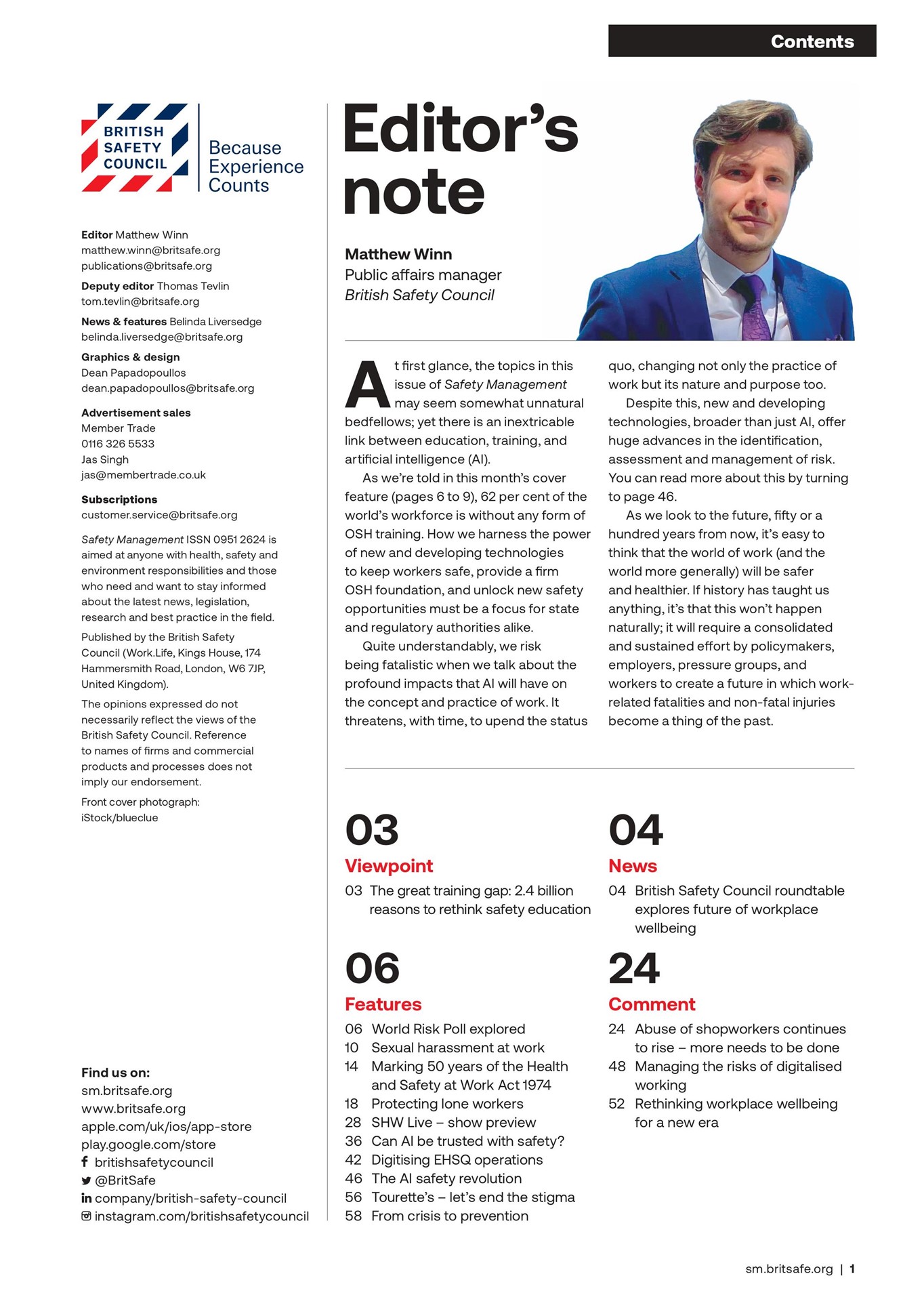As one of the largest sectors in the service industry, healthcare plays an important role in social welfare, job creation and economic development
Features
Managerial support is key to success
A well-functioning healthcare sector provides opportunities for people to live longer, happier and in good health. Healthcare systems in modern societies are however faced with major challenges, such as an increasingly ageing population, health and social inequalities and rising healthcare expenditure, all of them at the forefront of public debate.
A key priority in this debate concerns the need to provide respectful and responsive services that enrich patients’ experience of healthcare. Patients’ experience is recognised as one of the three pillars of healthcare quality, alongside clinical effectiveness and patient safety. It is characterised by prompt and coordinated hospital care, shared decision-making with patients, reduced waiting time in hospital and timely access to services. There is a growing research appetite to better understand key factors influencing the quality of care that patients receive.
One way to improve patients’ experience is to provide managerial support to healthcare workers and encourage their positive attitudes at work. Managerial support can take many different forms, including effective communication between workers and managers, involving workers in important decisions, giving workers clear feedback on their performance and helping them with difficult tasks.
The support may originate from an immediate manager or a supervisor who directly oversees staff responsibilities, as well as a more senior manager involved in making policy decisions that affect the organisation as a whole. Notwithstanding the source of managerial support, the goal is to motivate workers and encourage optimal levels of performance.
Clear evidence
I undertook a study to demonstrate how perceived support from supervisors and senior managers can inspire positive attitudes among healthcare workers, and consequently improve the quality of services offered to patients. I focused on three types of attitude, including psychological engagement, job involvement and staff advocacy, which characterise an engaged worker and play a fundamental role in improving the quality of services that patients receive. I examined data from 67,503 staff of about 150 National Health Service Trusts (NHS) in England, linked with data from 69,347 patients who had received treatment in those NHS trusts.
The results, presented at the 78th Annual Meeting of the Academy of Management in August 2018, showed clearly that support from supervisors and senior managers can improve workers’ psychological engagement, their sense of job involvement and their willingness to act as advocates of organisational reputation. Specifically, workers experiencing managerial support were generally more dedicated, energetic, and able to make improvements happen in their work area. Such workers felt valued and cared for, and consequently, more excited about recommending the organisation as a good place to work or a place where patients can receive quality treatment.
My study, therefore, establishes managerial support as a fundamental tool for promoting the right attitudes among workers. When workers have the right attitudes, they undertake take pride in doing good work and strive to deliver the quality of care that makes a difference to patients.
The results provide useful guidance on how managerial support practices can be deployed when aiming to strike a balance between staff performance and patients’ experience of quality care. The study has shown particularly that a supportive relationship with immediate and senior managers can go a long way towards ensuring that workers put in their best effort on the job. Creating a supportive culture in the work environment is therefore imperative to ensure the ongoing success of an organisation.
As part of the organisational goals, healthcare leaders should pay closer attention to support practices that foster workers’ skills, personal growth and development. This will cultivate an environment in which workers feel valued, cared for and adequately respected. In organisations where supportive practices are already in place, more effort is needed to further develop and sustain such practices.
Research results available at:
Text Box
https://journals.aom.org/doi/abs/10.5465/AMBPP.2018.14581abstract
Chidiebere Ogbonnaya
Senior lecturer in Organisational Behaviour/Human Resource Management
Business School, University of Sussex
FEATURES

Stars, stripes and safety
By Belinda Liversedge on 02 July 2025
It seems like America today is rarely out of the news, particularly since President Trump won his second term. Our ‘special relationship’ with America has continued, with the country a strong pipeline for inspiration, products and trends.

The hidden risks of lithium-ion batteries
By Adrian Simmonds, QBE Europe on 01 July 2025
With UK fire services now tackling at least three Li-ion battery fires a day, it’s clear that stronger regulation and enforcement is urgently required to prevent the sale, use and modification of poor-quality and potentially dangerous batteries used in e-bikes and scooters.

Not leaving it to the Fates: the Golden Thread unspun?
By Andrew Gladstone-Heighton, Institute of Workplace and Facilities Management (IWFM) on 01 July 2025
Workplace and facilities management professionals play a vital role in creating and maintaining a ‘Golden Thread’ of digital information to ensure the ongoing safety of occupied higher-risk residential buildings. Now, new tools and guidance have been published to ensure everyone adopts a standardised approach when drawing together the required data and information.



